Find Help
More Items From Ergsy search
-

Incontinence and Prolapse - Physiotherapy Advice
Relevance: 100%
-

Incontinence and Prolapse - Physiotherapy Advice
Relevance: 100%
-
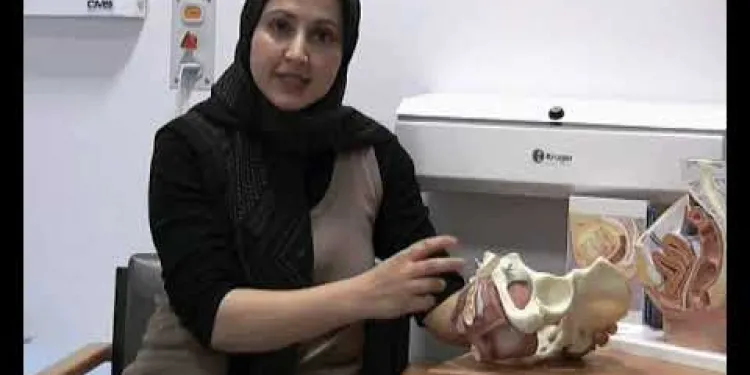
Physiotherapy Assessment of Urinary Incontinence
Relevance: 62%
-

Prolapse Management
Relevance: 54%
-

Prolapse Types and Tips
Relevance: 49%
-

Pelvic health: prolapse
Relevance: 48%
-

Pelvic health: prolapse
Relevance: 47%
-

Incontinence | NHS
Relevance: 39%
-

Pelvic health: Urge Incontinence
Relevance: 36%
-
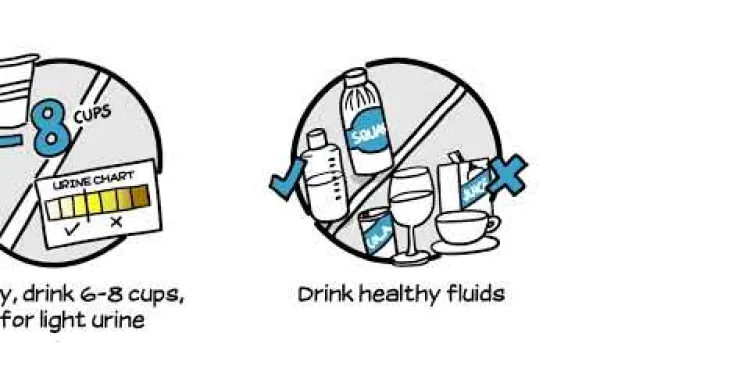
Avoiding infections with urinary incontinence
Relevance: 36%
-

Pelvic health: stress urinary incontinence
Relevance: 33%
-

Your pelvic health matters: insights from NHS clinicians
Relevance: 32%
-

What is air physiotherapy?
Relevance: 31%
-

Newcastle Specialist Continence Service's Light Urinary Incontinence Project
Relevance: 30%
-

Is a prescription needed for air physiotherapy?
Relevance: 30%
-

Does air physiotherapy involve medication?
Relevance: 29%
-

How does air physiotherapy work?
Relevance: 29%
-

Are there any exercises involved in air physiotherapy?
Relevance: 29%
-

Sandwell and West Birmingham Hospitals NHS Trust – Faecal Incontinence and Constipation Healthcare
Relevance: 29%
-

Can air physiotherapy be done at home?
Relevance: 28%
-

Who can benefit from air physiotherapy?
Relevance: 28%
-

NHSGGC - Respiratory Physiotherapy Service: Self-Management
Relevance: 28%
-

What equipment is used in air physiotherapy?
Relevance: 28%
-

Can air physiotherapy prevent respiratory infections?
Relevance: 28%
-
Can air physiotherapy help with COVID-19 recovery?
Relevance: 27%
-

How often should one perform air physiotherapy?
Relevance: 27%
-
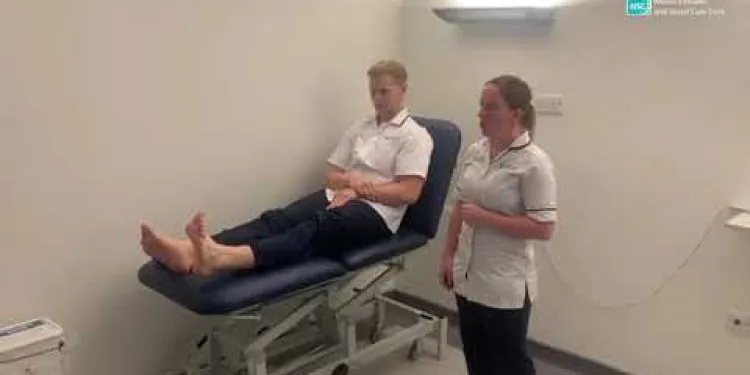
Physiotherapy Exercises following an Ankle Fracture
Relevance: 27%
-

What qualifications should a provider of air physiotherapy have?
Relevance: 26%
-

The Leeds Specialist Rehabilitation Centre - 3 Prosthetic Physiotherapy
Relevance: 26%
-

Part One: Understanding Osteoarthritis- MSK Physiotherapy
Relevance: 24%
-

What is an incentive spirometer in air physiotherapy?
Relevance: 20%
-

The Pelvic Floor Muscles - Developing an Exercise Programme
Relevance: 19%
-
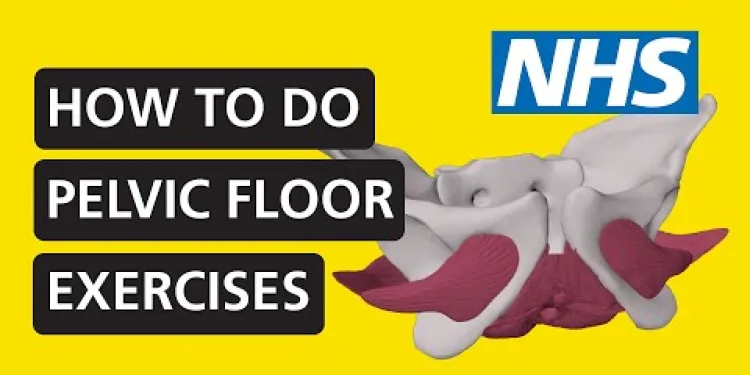
How to do pelvic floor exercises | NHS
Relevance: 18%
-

Is air physiotherapy different from traditional physiotherapy?
Relevance: 17%
-
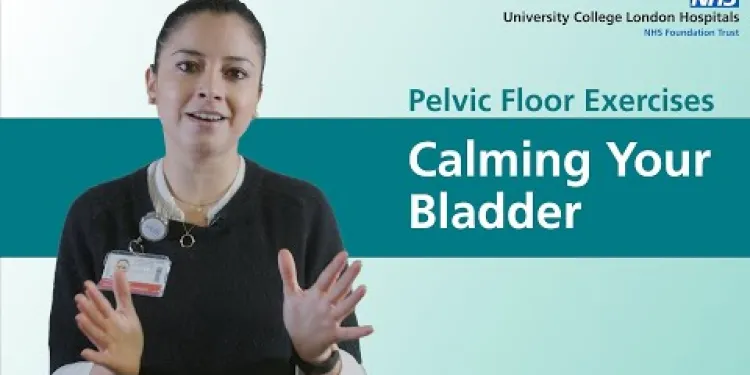
Pelvic Floor Exercises - Using Your Pelvic Floor to Calm Down Your Bladder
Relevance: 16%
-

How does PEP therapy work in air physiotherapy?
Relevance: 15%
-

Are there any risks associated with air physiotherapy?
Relevance: 13%
-

How does surgery treat prostate cancer?
Relevance: 12%
-

How long does an air physiotherapy session last?
Relevance: 12%
-

Frozen Shoulder Assisted Abduction
Relevance: 11%
Incontinence and Prolapse: Physiotherapy Advice
Understanding Incontinence and Prolapse
Incontinence, a condition characterized by the involuntary loss of urine or faeces, can significantly impact quality of life. Similarly, prolapse refers to the descent of pelvic organs into or outside the vaginal canal, typically affecting the support structures. These conditions are prevalent among women due to childbirth and menopause, though they can also affect men. While often discussed under physical health, incontinence and prolapse may lead to emotional distress and discomfort if left unaddressed.
Role of Physiotherapy
Physiotherapy serves as an essential non-surgical intervention for managing incontinence and prolapse, offering tailored exercises to strengthen the pelvic floor muscles. In the UK, individuals can consult a physiotherapist specialized in pelvic health to receive personalized guidance. A typical regimen might include pelvic floor exercises like Kegels, which involve contracting and relaxing the muscles responsible for urination and supporting the pelvic organs.
Pelvic Floor Exercises
For incontinence, learning to identify and correctly engage the pelvic floor muscles is crucial. The exercises typically involve gently tightening these muscles for a few seconds, then relaxing, repeated multiple times a day. It's advisable to practice these exercises in different positions – sitting, standing, or lying down – for the best results. Consistency is key, and results may start to appear within weeks.
Lifestyle Modifications
Beyond exercises, lifestyle changes can significantly improve symptoms of incontinence and prolapse. Reducing caffeine and alcohol intake, managing a healthy weight, and avoiding heavy lifting can alleviate undue pressure on pelvic structures. Additionally, smoking cessation is recommended to prevent chronic coughing, which can exacerbate symptoms.
Professional Support
If incontinence or prolapse symptoms persist, seeking medical advice is important. In the UK, starting with a general practitioner can lead to a referral to a urologist, gynecologist, or a dedicated physiotherapist for further assessment and treatment options. Remember, these conditions are common and manageable, and reaching out for help is the first step towards regaining confidence and comfort.
Incontinence and Prolapse: Physiotherapy Advice
Understanding Incontinence and Prolapse
Incontinence is when someone can't control their pee or poo. Prolapse means some parts inside the body, like the bladder or uterus, move down. These things can happen to women after having a baby or going through menopause. They can also happen to men. Incontinence and prolapse can make people feel sad or worried if they do not get help.
Role of Physiotherapy
Physiotherapy is a way to help without surgery. It teaches special exercises for incontinence and prolapse. These exercises make the muscles around the bladder and pelvis stronger. In the UK, you can see a physiotherapist who knows about pelvic health. They will show you exercises like Kegels, which help control pee and support the organs inside your pelvis.
Pelvic Floor Exercises
To help with incontinence, you need to find and squeeze the pelvic floor muscles. Hold the squeeze for a few seconds, then relax. Do this exercise several times a day. Try doing them while sitting, standing, or lying down. Keep practicing regularly, and you might see changes in just a few weeks.
Lifestyle Modifications
Besides exercises, changing some habits can help with incontinence and prolapse. Drink less coffee and alcohol, keep a healthy weight, and don't lift heavy things. If you smoke, try to stop, as coughing can make things worse.
Professional Support
If the problems with incontinence or prolapse continue, it is important to see a doctor. In the UK, see a general practitioner (GP) first. They can send you to a specialist like a urologist, gynecologist, or physiotherapist. These issues are common and can be helped. Asking for help is the first step to feeling better and more comfortable.
Frequently Asked Questions
What is incontinence and how can physiotherapy help?
Incontinence is the involuntary leakage of urine or feces. Physiotherapy can help by strengthening pelvic floor muscles, improving bladder control, and providing strategies to manage symptoms.
What causes pelvic organ prolapse?
Pelvic organ prolapse occurs when the pelvic organs drop from their normal position. It is often caused by childbirth, menopause, obesity, heavy lifting, or chronic cough.
Can men experience incontinence?
Yes, men can experience incontinence, often due to prostate issues, urinary tract infections, or nerve damage. Physiotherapy can offer effective treatments for managing symptoms.
How effective is pelvic floor muscle training?
Pelvic floor muscle training is very effective for most people. With consistent practice, many individuals experience significant improvements in bladder control.
How long does physiotherapy take to show results for incontinence?
Results can vary, but many people see improvement after 6-12 weeks of consistent pelvic floor exercises.
Are there specific exercises I can do to strengthen my pelvic floor?
Yes, exercises such as Kegel exercises, which involve contracting and relaxing the pelvic floor muscles, are commonly recommended.
Is surgery the only solution for severe prolapse?
No, surgery is not the only solution. Pelvic floor physiotherapy can help manage symptoms and, in some cases, avoid surgery.
Are physiotherapy consultations covered by the NHS in the UK?
Yes, physiotherapy consultations for incontinence and prolapse may be covered by the NHS. Check with your GP for a referral.
What lifestyle changes can help with incontinence?
Maintaining a healthy weight, reducing caffeine and alcohol intake, and staying active can help reduce symptoms of incontinence.
How can I reduce the risk of developing a prolapse?
Strengthening your pelvic floor, avoiding heavy lifting, controlling chronic coughing, and maintaining a healthy weight can reduce the risk of prolapse.
Can incontinence improve without treatment?
In some cases, incontinence may improve on its own, but treatment, such as physiotherapy, often accelerates improvement and manages symptoms more effectively.
What is a pelvic floor physiotherapist?
A pelvic floor physiotherapist is a specialist who focuses on treating pelvic health issues through exercises and lifestyle advice.
What should I expect during a physiotherapy session for incontinence?
You can expect an assessment of your pelvic floor, guided exercises, bladder retraining advice, and personalised treatment plans.
Can diet affect incontinence symptoms?
Yes, certain foods and drinks, like caffeine and spicy foods, can irritate the bladder. A balanced diet can help manage symptoms.
Are incontinence products recommended while undergoing physiotherapy?
Yes, using incontinence products can provide comfort and confidence while you work on improving symptoms through physiotherapy.
What is incontinence and how can physio help?
Incontinence means having trouble holding pee or poop. It can be hard for some people to wait until they get to the toilet.
Physio, which is a type of exercise therapy, can help. Physio teaches your body muscles to get stronger and work better. This can make it easier to hold pee or poop.
Here are some helpful tools and tips:
- Try to go to the bathroom at regular times.
- Practice exercises that help your belly and bottom muscles. A physio can show you how.
- Stay calm and don’t worry too much if you have an accident.
Incontinence means trouble holding your pee or poop. It can leak out when you don’t want it to. Physiotherapy can help. It helps make the muscles that stop pee and poop stronger. It also helps you control your bladder better and gives you tips to handle the problem.
What makes pelvic organs drop down?
Pelvic organ prolapse happens when the organs in the pelvis move out of place. This can happen because of having a baby, getting older, being overweight, lifting heavy things, or coughing a lot.
Can men have trouble holding pee?
Yes, men can have trouble controlling their pee. This can happen because of problems with the prostate, bladder infections, or damage to nerves. Seeing a physiotherapist can help manage these problems and make it easier.
How well does pelvic floor muscle training work?
Doing exercises for your pelvic floor muscles helps many people a lot. If you keep practicing, you can get much better at controlling your bladder. Try to practice these exercises regularly.
How long before physiotherapy helps with incontinence?
Physiotherapy can help with bladder control (this is called incontinence). But it takes time to work. For some people, it might help in a few weeks. For others, it can take a few months. Everyone is different.
If you are having trouble reading this, you can:
- Ask someone to help you.
- Use a ruler or a piece of paper to follow along.
- Try reading one sentence at a time.
- Practice a little bit each day to get better.
Results can be different for everyone, but many people get better after doing pelvic floor exercises for 6 to 12 weeks. Make sure to do the exercises regularly.
Can I do exercises to make my pelvic floor muscles stronger?
Yes, you can do exercises to help make your pelvic floor muscles stronger. Here are some tips:
- Try squeezing your muscles like you are trying to stop peeing. Hold for a few seconds, then let go. Do this several times a day.
- Sit or lie down when you do the exercises, so you're comfortable.
- Use reminder notes or alarms to help you remember to do the exercises every day.
- Ask a doctor or therapist for help if you're not sure how to do the exercises.
These exercises can help your muscles get strong and healthy. If you need more help, talk to a doctor or therapist.
Yes, exercises like Kegel exercises are often suggested. These exercises mean squeezing and letting go of the muscles you use when you go to the toilet.
Is surgery the only way to fix severe prolapse?
Severe prolapse is when an organ inside the body moves out of place. It can cause problems.
Sometimes, doctors think surgery is the best way to help. But, it is not the only choice.
You can try other things first.
- Exercise: Simple exercises like squeezing muscles can help make them stronger. This is called pelvic floor exercises or Kegels.
- Support Devices: There are special devices called pessaries. They go inside the body to help hold things up.
- Talking to a Doctor: It's important to talk to doctors and ask them what is the best choice for you.
Remember, everyone is different. What works for one person might not work for someone else.
No, you do not always need surgery. There are other ways to help. A type of exercise called pelvic floor physiotherapy can help you feel better. Sometimes, these exercises can stop you from needing surgery at all.
Does the NHS in the UK pay for physiotherapy visits?
"Physiotherapy" means exercises or treatments to help your body move better. The NHS is the UK health service. It helps people when they are sick.
Here is an easier way to understand:
- Some physiotherapy visits might be free with the NHS.
- It depends on your needs and where you live.
- You might need to ask your doctor for a referral to see a physiotherapist.
Here are some tips to help you:
- Ask your doctor if you can get physiotherapy from the NHS.
- Use a planner or calendar to remember your appointments.
- A friend or family member can help you understand what the doctor says.
Yes, the NHS might help pay for physiotherapy if you have problems like incontinence or prolapse. Ask your doctor for a referral to see if you can get it.
What can you do to help with bladder problems?
Here are some simple ideas to help if you have trouble controlling your bladder:
- Drink the right amount of water. Not too much or too little.
- Avoid drinks like coffee or soda. They might make you need to go more.
- Eat healthy foods like fruits and vegetables.
- Do exercises called "pelvic floor exercises." They can make the muscles that control your bladder stronger.
You can also:
- Try to go to the bathroom at the same times each day.
- Keep a diary of when you go, to see patterns.
- Talk to a doctor or nurse. They can give you more tips.
There are special apps and reminder alarms that can help you remember when to go to the bathroom too!
Staying a healthy weight, drinking less caffeine and alcohol, and moving your body more can help with bladder problems.
How can I stop a prolapse from happening?
Keeping your pelvic floor muscles strong can help you stay healthy. Try not to lift heavy things. If you cough a lot, see a doctor. Staying at a healthy weight is important too. These things can help stop prolapse.
Can bladder problems get better on their own?
Sometimes, problems with holding pee or poop get better by themselves. But, getting help with exercises for your body can make you feel better faster and help keep the problem under control.
What is a pelvic floor physiotherapist?
A pelvic floor physiotherapist is a helper for your body. They know a lot about your muscles. These muscles help you with going to the bathroom and having a baby.
They teach you exercises to make these muscles strong. If you have pain or problems, they can help you feel better.
Some tools you can use to help are simple pictures or videos. They show you how the exercises work. You can also ask them questions if you need help.
A pelvic floor physiotherapist is a type of doctor. They help people with problems in the lower belly area. They use exercises and give advice about how to live well.
What will happen in a physiotherapy session for bladder and bowel problems?
Here's what you can expect in a physiotherapy session:
- Meet Your Therapist: You will talk with a physiotherapist. This person helps with body exercises.
- Talk About Your Problems: You will tell the therapist about your bladder and bowel problems. This helps them understand how to help you.
- Simple Exercises: The therapist will show you easy exercises to make your muscles strong. This can help stop leaks.
- Ask Questions: It’s important to ask questions if you don’t understand something. The therapist is there to help you.
These tools might help you:
- Pictures and Diagrams: These can show you how to do exercises.
- Reminder Notes: Write down what you learn to remember later.
- Practice at Home: Do the exercises at home to get better.
We'll check how your pelvic floor muscles are working. We'll show you exercises to help. We'll give you advice on how to manage when you need to use the bathroom. We'll make a special plan just for you to get better.
You can use tools like pictures or videos to help understand exercises better. It's also good to set small goals and ask someone to help if you have questions.
Can what you eat change how often you need the bathroom?
Yes, some foods and drinks can bother the bladder. Things like caffeine and spicy foods might make it feel uncomfortable. Eating a balanced diet can help you feel better.
Should you use incontinence pads when doing exercises to get better?
Yes, using products for incontinence can help you feel better and more confident. They are useful while you work on getting better with special exercises.
Useful Links
This website offers general information and is not a substitute for professional advice.
Always seek guidance from qualified professionals.
If you have any medical concerns or need urgent help, contact a healthcare professional or emergency services immediately.
Some of this content was generated with AI assistance. We’ve done our best to keep it accurate, helpful, and human-friendly.
- Ergsy carfully checks the information in the videos we provide here.
- Videos shown by Youtube after a video has completed, have NOT been reviewed by ERGSY.
- To view, click the arrow in centre of video.
- Most of the videos you find here will have subtitles and/or closed captions available.
- You may need to turn these on, and choose your preferred language.
- Go to the video you'd like to watch.
- If closed captions (CC) are available, settings will be visible on the bottom right of the video player.
- To turn on Captions, click settings .
- To turn off Captions, click settings again.
More Items From Ergsy search
-

Incontinence and Prolapse - Physiotherapy Advice
Relevance: 100%
-

Incontinence and Prolapse - Physiotherapy Advice
Relevance: 100%
-

Physiotherapy Assessment of Urinary Incontinence
Relevance: 62%
-

Prolapse Management
Relevance: 54%
-

Prolapse Types and Tips
Relevance: 49%
-

Pelvic health: prolapse
Relevance: 48%
-

Pelvic health: prolapse
Relevance: 47%
-

Incontinence | NHS
Relevance: 39%
-

Pelvic health: Urge Incontinence
Relevance: 36%
-

Avoiding infections with urinary incontinence
Relevance: 36%
-

Pelvic health: stress urinary incontinence
Relevance: 33%
-

Your pelvic health matters: insights from NHS clinicians
Relevance: 32%
-

What is air physiotherapy?
Relevance: 31%
-

Newcastle Specialist Continence Service's Light Urinary Incontinence Project
Relevance: 30%
-

Is a prescription needed for air physiotherapy?
Relevance: 30%
-

Does air physiotherapy involve medication?
Relevance: 29%
-

How does air physiotherapy work?
Relevance: 29%
-

Are there any exercises involved in air physiotherapy?
Relevance: 29%
-

Sandwell and West Birmingham Hospitals NHS Trust – Faecal Incontinence and Constipation Healthcare
Relevance: 29%
-

Can air physiotherapy be done at home?
Relevance: 28%
-

Who can benefit from air physiotherapy?
Relevance: 28%
-

NHSGGC - Respiratory Physiotherapy Service: Self-Management
Relevance: 28%
-

What equipment is used in air physiotherapy?
Relevance: 28%
-

Can air physiotherapy prevent respiratory infections?
Relevance: 28%
-
Can air physiotherapy help with COVID-19 recovery?
Relevance: 27%
-

How often should one perform air physiotherapy?
Relevance: 27%
-

Physiotherapy Exercises following an Ankle Fracture
Relevance: 27%
-

What qualifications should a provider of air physiotherapy have?
Relevance: 26%
-

The Leeds Specialist Rehabilitation Centre - 3 Prosthetic Physiotherapy
Relevance: 26%
-

Part One: Understanding Osteoarthritis- MSK Physiotherapy
Relevance: 24%
-

What is an incentive spirometer in air physiotherapy?
Relevance: 20%
-

The Pelvic Floor Muscles - Developing an Exercise Programme
Relevance: 19%
-

How to do pelvic floor exercises | NHS
Relevance: 18%
-

Is air physiotherapy different from traditional physiotherapy?
Relevance: 17%
-

Pelvic Floor Exercises - Using Your Pelvic Floor to Calm Down Your Bladder
Relevance: 16%
-

How does PEP therapy work in air physiotherapy?
Relevance: 15%
-

Are there any risks associated with air physiotherapy?
Relevance: 13%
-

How does surgery treat prostate cancer?
Relevance: 12%
-

How long does an air physiotherapy session last?
Relevance: 12%
-

Frozen Shoulder Assisted Abduction
Relevance: 11%


